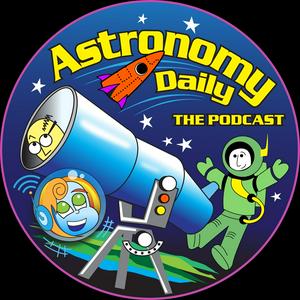🚀 Astronomy Daily — Season 5 | Monday, February 23, 2026 NASA rolls back the Artemis 2 moon rocket, Europa's ocean gets a life-friendly upgrade, SpaceX breaks its own booster reuse record, Rocket Lab launches a hypersonic mission TODAY, Mars dust storms reveal how the Red Planet lost its water, and SIX planets are visible in tonight's sky. IN THIS EPISODE: 🌕 Artemis 2 rollback — the crew is released from quarantine and the moon launch is pushed to April 🌊 Europa's hidden ocean may be receiving nutrients from the surface — big news for the search for life 🛸 SpaceX flies two Falcon 9s in one day and sets a new booster reuse record 🔥 Rocket Lab's HASTE hypersonic test rocket launches TODAY from Wallops, Virginia 🌪️ A Mars dust storm was moving water at unexpectedly high rates — new clues to the Red Planet's past 🌟 Six-planet parade peaks this week + the crescent Moon passes through the Pleiades tonight FOLLOW ASTRONOMY DAILY: 🌐 astronomydaily.io 📱 @AstroDailyPod on all platforms 🎙️ Part of the Bitesz.com Podcast Network
Become a supporter of this podcast: https://www.spreaker.com/podcast/astronomy-daily-space-news-updates--5648921/support.
Sponsor Details:
Ensure your online privacy by using NordVPN. To get our special listener deal and save a lot of money, visit www.bitesz.com/nordvpn. You'll be glad you did!
Become a supporter of Astronomy Daily by joining our Supporters Club. Commercial free episodes daily are only a click way... Click Here
This episode includes AI-generated content.


